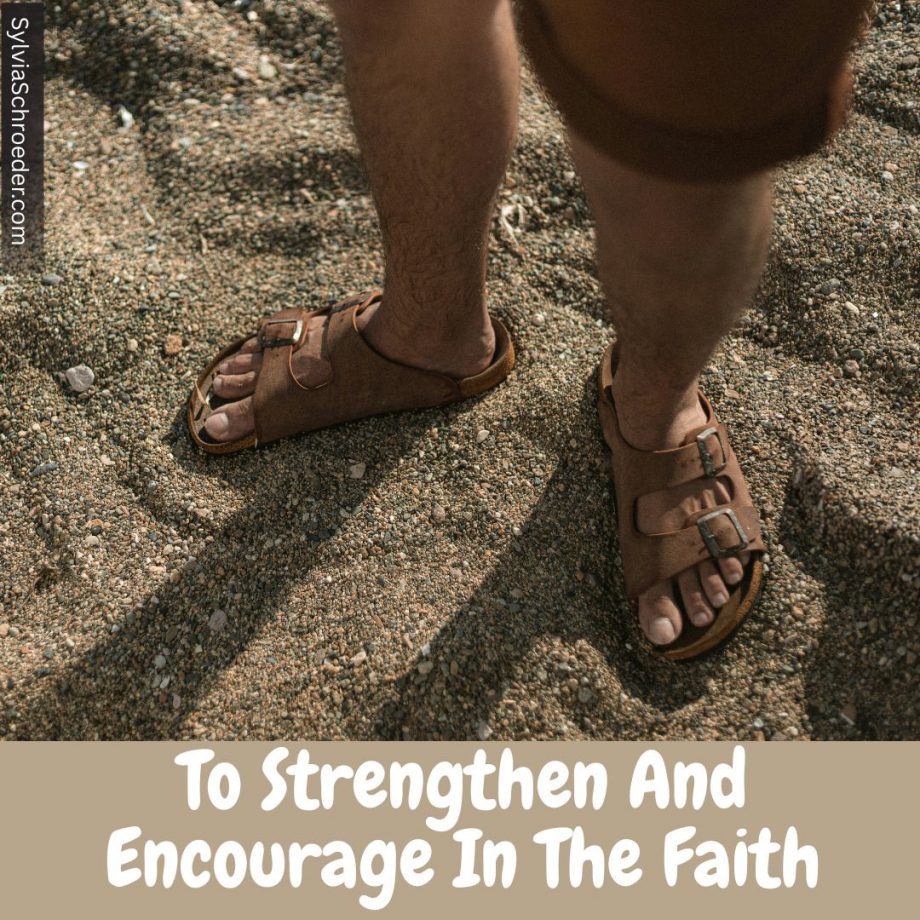She sat in front of me, a crumpled mess. Words halted and poured again like the start and go of a sputtering fountain. Lines furrowed her forehead. They drew the portrait of a weary soul. My heart twisted with her paradox of stories from cross cultural ministry, both uplifting and exhausting.
Paul, the missionary, faced exhilaration and discouragement in his ministry as evangelist and one who discipled others. Some came to Christ, and grew in their faith. But there were those who opposed, betrayed, and even harmed him.
If Paul’s events and accompanying emotions were on a line graph, it would go all over the place, like the marks of suffering on my friend’s face. In the trenches of active overseas ministry, she had experienced some really high highs, but also some really low lows.
While there, she saw people open their eyes to the truth of salvation in Jesus, but others turned away from Him. Sometimes relationships with co-workers teeter-tottered. And, there were wounds that dug deep.
Paul experienced much of the same over his lifetime. Yet, his history with the town of Lystra is a testimony not just of resilience, but also of Christ’s unique calling despite conflict, criticism, and even hostility.
When enemies poisoned people’s minds against them, and a plot uncovered to stone them in Iconium, Paul and Barnabas ran for their lives to Lystra.
In Lystra, Paul healed a cripple from birth. The man leaped and walked. In the fervor of excitement, crowds swarmed to worship Paul and the disciples. But Barnabas and Paul stopped them.
Within a short time high highs and low lows like waves of the ocean flipped the welcome and turned it into hatred.
In the fickleness of mob hysteria, Paul was dragged from the city and stoned. Outside Lystra, they left him for dead.
Imagine the scene as his fellow disciples gathered around his bruised and bleeding body. Think of the fear, the sorrow, and dread in that moment.
But to their surprise, Paul picked himself up off the dirt and went back into a city filled with hatred for him. The next day he traveled on to minister in the nearby town of Derbe.
One might think that ended his Lystra ministry.
After all, no one is comfortable with returning to a place of hurt, betrayal, or abuse where wounds are touched again. I mean who needs that, right?
Have you been there? Have you been in that place where hurt is still so tender and the pain of remembering takes away your breath?
Christ’s love experienced in the hardest times, equips us for journeys ahead. But that isn’t all. Others are equipped too.
Jesus reclaims what we’ve been through and from those experiences provides good gifts for others.
Opposition to the gospel had been fierce. The cost of following Christ impacted safety and quality of life for everyone who believed. Yet, Paul, great evangelist and preacher, loved the church and wanted the believers in Lystra to gain from his difficult experience. He knew his own sufferings would help them persevere through theirs.
So, Paul returned to Lystra.
“…strengthening the souls of the disciples, encouraging them to continue in the faith, and saying that through many tribulations we must enter the kingdom of God.” (Acts 14:22 ESV).
His experiences in the trenches gave him a powerful message. He didn’t proclaim a twisted promise of rosy comfort. He honored Christ by acknowledging the many difficulties inherent to serving Him.
Paul walked into the dusty streets of Lystra another time. His stoning there undoubtedly left a huge impact on the lives of Lystra’s believers. As he entered, it must have been almost unbelievable for the disciples there, and yet marvelous.
Coming alongside, exhorting, and teaching, he “encouraged them to continue in the faith.”
Paul returned to a place of great pain because “continuing in the faith” of Jesus’ gospel of salvation, held greater importance.
Our worst places often become God’s best venues for Him to accomplish His work.
“For consider Him who has endured such hostility by sinners against Himself, so that you will not grow weary and lose heart. (Hebrews 12:3 NASB)
- Serving Jesus takes us from comfortable to uncomfortable, from convenience to inconvenience, from highs to lows. We grow weary and lose heart.
- And sometimes it’s just easier not to go back to where it hurts. Yet, our friend Paul, in his return to Lystra shows us that it really isn’t about us. It is about Jesus and the Church He loves, about getting up from the dirt and moving ahead with His purpose.
- And sometimes, we have to go back to that place of hurt so that Jesus can heal another.
As much as I would have liked to, I could not fix my friend’s problems or take them from her experience. But as we prayed together, I felt certain that her laughter and tears would someday bring blessing and encouragement to another’s journey.


Lois S.
Tears come to my eyes as I read of your friend’s struggle in cross-cultural ministry. (And the struggles can be just as real even within a single culture, though there is a whole additional layer or more that comes by adding another culture to the mix.) Thanks for the reminder of how Paul returned to Lystra, to his place of pain and hurt!
Sylvia Schroeder
Thank you Lois! You are right, there are deep struggles in single cultures too. I have always been grateful for the example of those first ambassadors for Jesus.
Katherine Pasour
I think we’ve been there, when we’re overwhelmed and ready to quit. Paul’s example encourages us not to give up–as does your encouraging message. Your friend was blessed to have your presence your compassionate heart, and listening ears–sometimes that’s what we need most.
Sylvia Schroeder
Thanks Katherine. I think you are right!! Overwhelmed and ready to quit is pretty much a place we’ve all visited. I am grateful for Paul’s example, and for God’s Word which continues to be a help when we get there!
Sharon
Thank you Sylvia!
Sylvia Schroeder
Thank you for reading and commenting Sharon!
Nancy Ruegg
How wonderful for this cross-cultural missionary to have you, Sylvia, for an encourager and supporter. Your wisdom, indicated here by the lesson you drew from Paul’s life, must surely have blessed her. You are so right: “Our worst places often become God’s best venues for Him to accomplish His work.” And we can take joyful satisfaction from that truth.